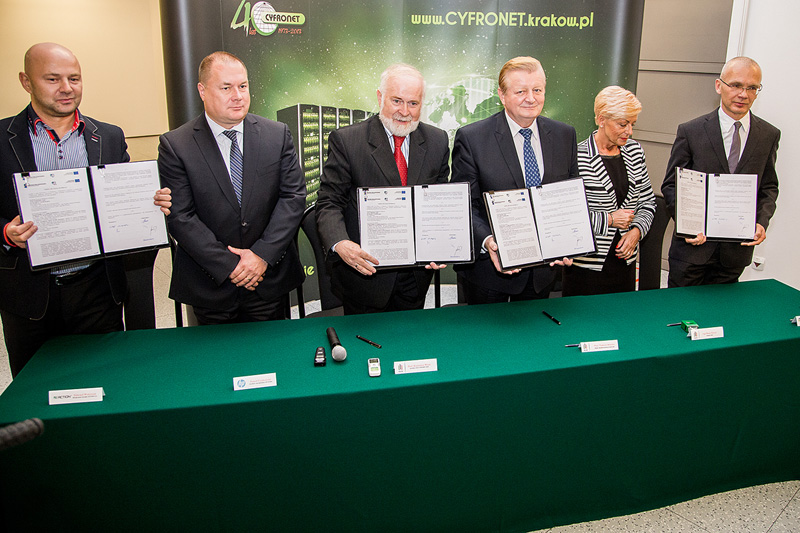Earlier this month, Gdańsk University of Technology declared plans to build the fastest supercomputer in Poland, a $9 million project developed via a partnership with companies Megatel and Action. The contract marks the first time Poland will have a computing cluster in excess of a petaflops. The consortium expects the 1.2 petaflops system will be sufficient to secure a spot within the upper 10 percent of the TOP500 list of world’s fastest computers. Built by Hewlett-Packard, the 2,600 processor system will weigh 15 tons, and will comprise about 30 racks.
“At the moment there are no boundaries that cannot be overcome with this system,” remarked a representative with the Megatel-Action consortium. “It is equipped with the latest processors, which were premiered a month ago.”
The supercomputer will be the core of a specialized manufacturing platform, operated by the Centre of Excellence for Research Infrastructure Manufacturing Applications (CD NIWA). This center of excellence will provide the tools, services and expertise to enable users to create and execute a wide range of applications.
The center will be open to support numerous scientific endeavors, with particular emphasis on the disciplines in the field of energy (shale gas), the environment, and medicine that are important to the nation’s economic standing and well-being.
On the heels of that announcement, AGH University of Science and Technology in Krakow revealed it would be building an even more powerful supercomputer with an innovative cooling system. On October 20, Rector of the AGH University Professor Tadeusz Słomka, Director of Academic Computer Center Cyfronet AGH Professor Kazimierz Wiatr and the leaders of tech companies Megatel and Action signed a $12 million agreement to deploy a 1.7 petaflop system called Prometheus, which will be four times more powerful than Zeus, the center’s existing supercomputer. Based on current TOP500 numbers, Prometheus will be number one in Poland, number twelve in Europe, and number 30 in the world.
Hewlett-Packard is manufacturing the system, which incorporates 1,728 HP Apollo 8000 servers into a fast InfiniBand fabric, capable of running at speeds of 56 Gb/s. The computer’s fifteen racks will house more than 41,000 Intel Haswell-EP CPUs and 215 TB DDR4 memory. Once constructed, Prometheus will represent the world’s largest installation of HP Apollo 8000 servers. It will be connected to two file systems with a total capacity of 10 PB and 150 GB/s bandwidth.
Using innovative direct water cooling technology to keep processors and memory modules operating smoothly makes Prometheus one of the most energy-efficient computers in its class in the world. Its energy efficiency (as measured by PUE) will rival some of the largest datacenter systems in the world. Project representatives noted that since water cooling enables high density, this thirty ton installation fits into just fifteen cabinets, half what would be necessary using conventional air cooling. Prometheus will consume approximately 650 kW, which is only about 25 percent more than Zeus, despite the older machine’s being only one-fourth as powerful.
Prometheus will be installed in the new purpose-built datacenter inside Cyfronet University, where it will serve researchers from many disciplines, including chemistry, physics, astrophysics, biology, energy and nanotechnology. The new system will also contribute to larger projects, like PLGrid, CTA (astrophysics), LHC (high energy physics), and EPOS (geophysics).
In 2013, 2,500 thousand registered Zeus users completed nearly 8 million computing tasks, a feat that would take roughly 11,000 years using ordinary computers. University representatives expect computational workloads to increase significantly in number and complexity thanks to the power of Prometheus.






























































